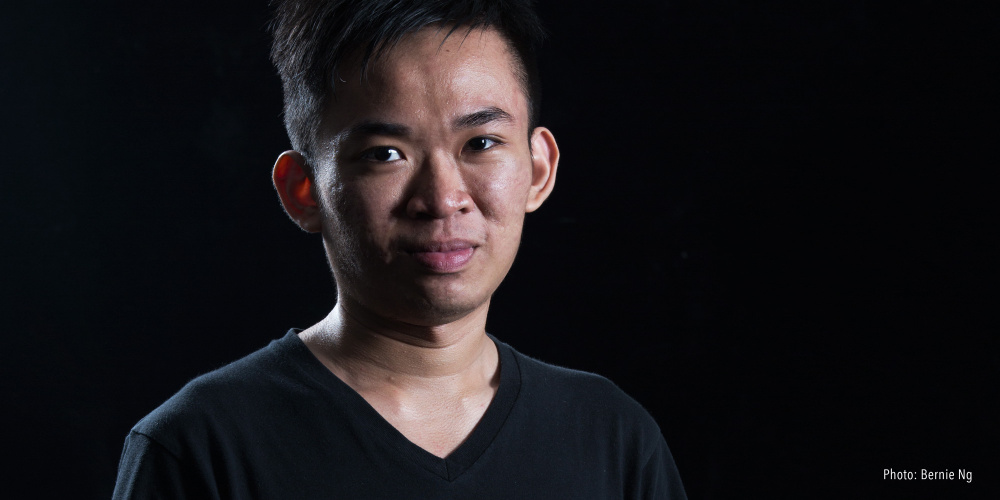
First captured by the power of theatre in River Valley High where he was a student, Desmond went on to eventually head the school’s Chinese Language Drama and Debate Society (CLDDS), participating in numerous performances.
From that start, Desmond deepened the drama connection as part of Drama Box’s youth wing, ARTivate, where he is a graduate of its second cohort in 2014. He has also served as the director’s assistant (movement) for Kopitiam (2016), a programme of the Esplanade’s Feed Your Imagination series.
After he graduates from ITI, Desmond plans to continue his work in acting, exploring theatrical structures and how they can create spaces for conversations in the community.
Q: Why did you choose to pursue theatre training at ITI?
I was interested in exploring and furthering my training as a theatre-maker, starting from the point of being an actor. I have seen some awesome works done by past TTRP/ITI graduates and I was convinced of the opportunity for training that ITI can offer. The integration of deep immersions in Asian traditional theatre forms, together with contemporary modes of training, struck me as both a broad and deep way of exploring the possibilities of theatre and theatre-training.
Q: Do you recall your first day here – almost three years ago?
Yes! I was awestruck by the diversity of each and every individual, and motivated by the fact that all of us had chosen to come to ITI because we had common goals to learn and train.
Q: What is everyday training at ITI like?
A constant reflection and reassessment of myself. The training is sometimes very broad, but you have to let yourself deepen the training, and not be pulled apart by some of the trivialities, the surfaces of each module/form/ “system”; that itself is the tough part of training.
Another part of ITI’s training also happens concurrently outside the studios: how do we choose to live our everyday lives, how we deal with each other, how we deal with our surroundings; all these are the foundations on which theatre itself is built upon. The daily grind of life sharpens one.
Q: Share something you’ve learnt about working with your classmates from various countries.
That “accepting” differences is a very different attitude from “tolerating” differences. I’m not saying that one is always better than the other, but theatre itself demands the openness and ease with differences, while acknowledging all the discomforts we have while working together. Letting myself be informed, be changed, be moved … that needs constant work. To always have the belief that all of us have good intentions, but because of context/background, our own interpretations of each other may be sometimes skewed or mistaken; allow that doubt, but also work through it.
Q: After many intense modules and hours, which ones have stayed with you the most?
The most exciting parts of the course for me have always been the Post-Modular Labs (PMLs) that happen right after the Immersions in Theatre Traditions modules. The PMLs are important because they are, both, a way in which we learn to bridge, understand and synthesise the traditional forms into our body; and a platform through which we are able to experiment fully, and perhaps learn to fail.
Q: So what is new in your approach as an actor now?
An openness to differences and diversity, both towards others and towards myself. Each person’s body contains undiscovered possibilities, and it’s very important to try to explore those parts of ourselves, in which vulnerabilities and strength – that are closely linked – lie.
Q: What will you look forward to after graduation? What are your plans?
The opportunity to continue my training, through both work and training. I plan to explore more into theatrical structures and the connection with the performer’s body.
Q: Any special words of reflection?
“It takes a whole village to raise a child.” I’m thankful for this wide village of friends, co-workers, mentors, and family.
